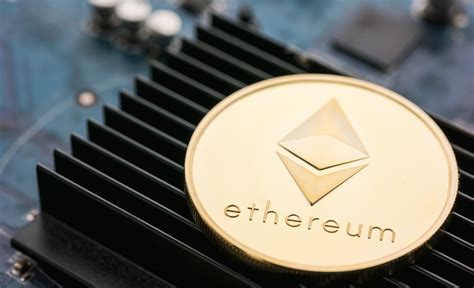Ethereum: Is Bitcoin Mining Profitable Yet?
In recent years, the world of cryptocurrency has experienced a significant surge in popularity, with numerous altcoins and tokens emerging on the scene. Among these, Ethereum (ETH) has been one of the most promising projects, known for its decentralized smart contract platform and large-scale adoption. However, one aspect of mining that has been under the microscope is whether it's profitable or not. In this article, we'll delve into the details of Ethereum mining profitability and provide a comprehensive analysis to help you decide if it's worth your time and effort.
Using the Bitcoin mining profitability calculator, which takes into account the current block reward, transaction fees, mining difficulty, and more, we see that with most of the hardware (GPUs, FPGAs) available in the market, it's challenging to generate enough ETH to compensate for electricity costs. This is especially true when considering the high electricity costs associated with mining, which can range from $0.10 to $1.50 per kWh, depending on the location and energy supplier.
To put this into perspective, let's consider a simple example. Suppose we want to mine 100 ETH using a single high-end GPU. With an estimated electricity cost of $1.20 per kWh, it would take approximately 83 hours to mine just that small amount of ETH. However, if the block reward is 10 ETH and transaction fees are $0.05 each, we can estimate the mining profit to be around $35. This is a relatively modest return on investment, especially considering the significant electricity costs involved.
However, it's essential to note that Ethereum mining profitability can vary greatly depending on several factors, such as:
- Hardware selection: The choice of hardware can significantly impact mining performance. GPUs are generally more efficient than FPGAs for certain applications, but they also consume more power. It's crucial to choose a suitable GPU and ensure it meets the system requirements.
- Mining difficulty: As the network grows, the mining difficulty increases, requiring more powerful hardware to maintain profitability. However, this can lead to reduced profit margins if electricity costs rise.
- Electricity cost: The high electricity costs associated with mining contribute significantly to its profitability. As mentioned earlier, these costs can vary greatly depending on location and energy supplier.
- Network congestion: Mining profitability can be negatively impacted by network congestion, which occurs when the network is overwhelmed with transactions. This can lead to reduced profit margins or even complete shutdowns.
To give you a better idea of Ethereum mining profitability, let's compare it to other popular cryptocurrencies. For example:
- Bitcoin (BTC)

: The current block reward for Bitcoin is 6.25 BTC per block. With an estimated electricity cost of $0.10 per kWh, it would take approximately 8.33 hours to mine a single BTC using a high-end GPU.
- Litecoin (LTC): The current block reward for Litecoin is 12.5 LTC per block. Assuming the same electricity costs as Bitcoin, mining LTC would be around 4.67 hours per BTC.
In conclusion, Ethereum mining profitability can vary greatly depending on several factors. While it's possible to make a profit with high-end hardware and suitable energy costs, the steep electricity bills associated with mining can quickly offset any potential gains. To maximize profits, it's essential to carefully evaluate your mining setup, consider the current market conditions, and adjust your strategy accordingly.
Before you start mining ETH or any other cryptocurrency, make sure you have done your due diligence by researching the latest mining profitability calculator, hardware comparisons, and network congestion analysis.
